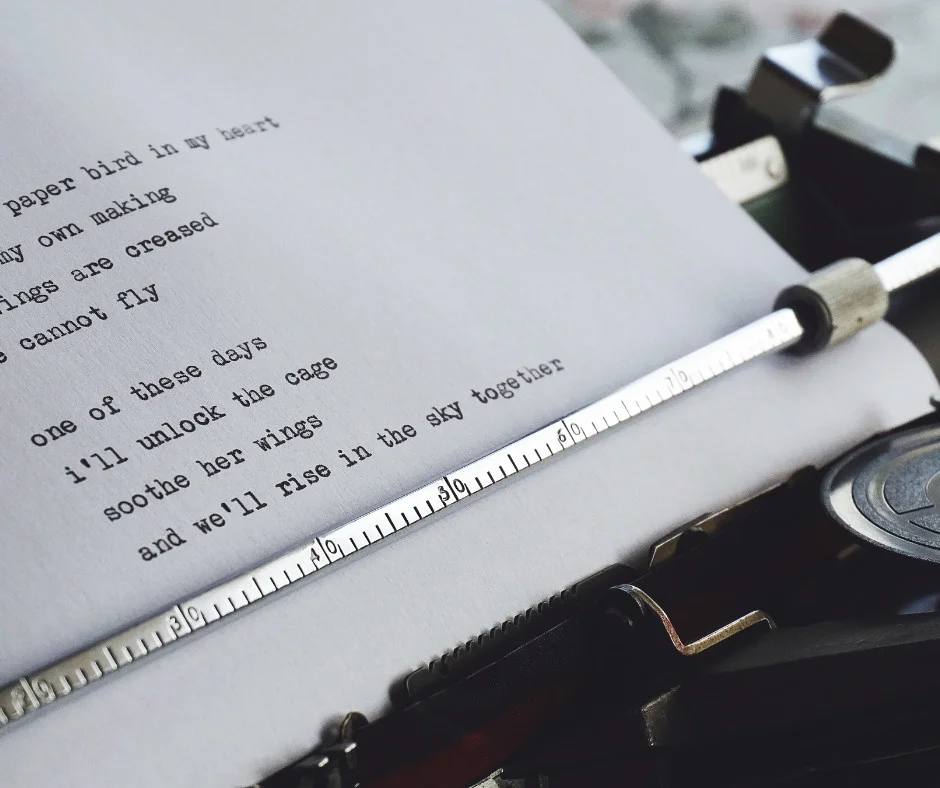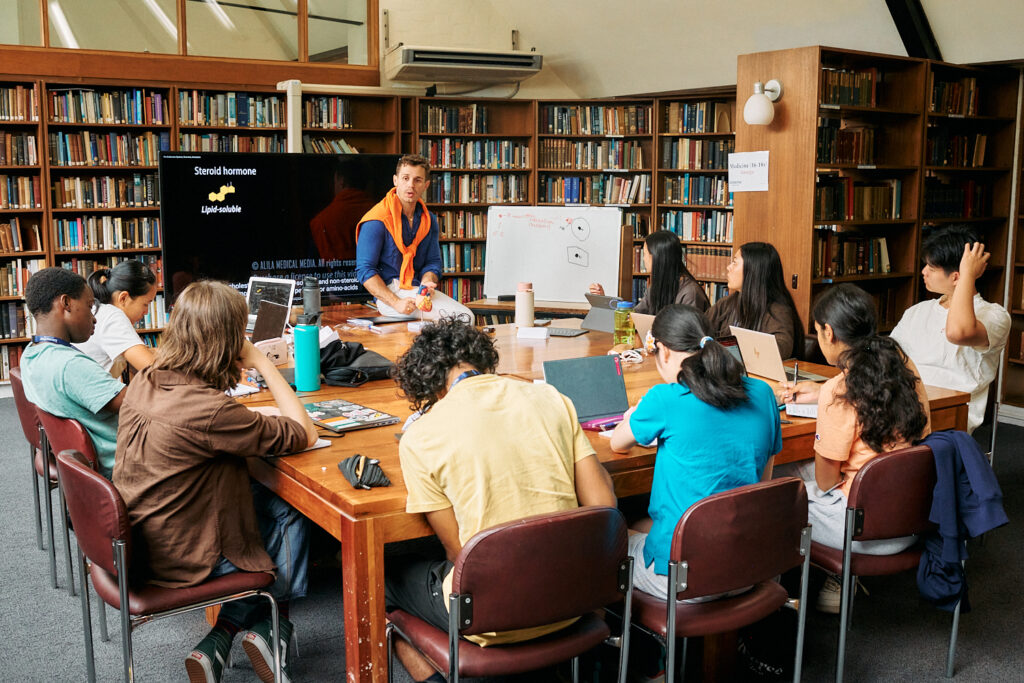Are you trying to figure out what A-Levels to take for creative writing? There are so many combinations of A-Levels that it can be hard to know which one is right combo for you.
And if you get it wrong, you might miss your dream university course.
That’s why we ensure that our creative writing summer school students have 1:1 personalised tutorials with world-renowned tutors. So they’ll have the best guidance in deciding their next steps in education.
We’ve also done the research for you and have come up with the A-Level requirements of the best Creative writing universities in the UK. Plus, we’ve given practical tips to help you become a better creative writer.
Read on to find out more!
What Is Creative Writing?
Creative writing is a form of writing that expresses emotions, feelings, and thoughts in an imaginative way. Types of creative writing include:
- Novels
- Short stories
- Epics
- Screenplays
- Television scripts
- Poems
- Songs
- Personal Essays
- Journals/Personal memoirs
- Letters
- Speeches
It’s different from academic or technical writing, which requires one to stick to the facts without personal additions.
When writing stories, creative writers use the elements of creative writing, such as:
- Plot – series of events consisting of the introduction, rising action, climax, falling action, and resolution.
- Setting – the time and place of the story.
- Characters – the ones who experience the plot and the setting.
- Point of View – the lens through which the reader experiences the story.
- Theme – the idea or message the author wants to relate to the reader.
Creative writers use strong verbs and adjectives to describe their characters and settings. They also use figurative language such as metaphors and similes to appeal to the readers’ emotions and imagination.
If you want to learn more about creative writing, check out our full What is creative writing guide.
Why Study Creative Writing?
Creative writing is a powerful medium when your aim is to persuade or entertain by appealing to the readers’ thoughts and emotions. When was the last time you were moved to tears when reading a character’s tragedy in a novel? What song did you listen to recently that gave you strong nostalgia, bringing up memories of a time long gone?
In creative writing, the author shares their human experience that the readers can relate to. You can move hearts and minds by sharing your experiences following creative writing principles.
What are real-world examples that call upon you to exercise creative writing?
- During university applications, when you need to submit your personal statement
- Sharing what you’ve learned from a module in an essay format as part of academic assessments in the university
- Writing a letter to your family, friend, or loved one to greet them during important milestones
- Encouraging potential customers to avail of your products or services
- Making a cover letter to convince a company to recruit you as part of the team
- Composing a song to woo a lover or attract listeners to buy your music.
- Creating a Youtube script for your vlogs
- Writing a book to promote your personal brand
Do you see how creative writing is everywhere? Here are some of the many benefits of learning creative writing:
- Enhances your written communication skills for improved confidence and self-expression
- Sharpens your critical thinking and reasoning skills
- Increases your chances of career success because many job positions require creative written work, especially in marketing and customer service
- Deepens your empathy because creative writing requires you to think from another person’s shoes
- Expressive writing, especially about painful life events, is a therapeutic tool. That’s why therapists encourage patients to write in their journals daily.
- Strengthens your imagination and encourages you to think outside the box, which improves your problem-solving skills
Creative writing is an essential skill you must learn to thrive in the hyper-information age we live in today.
Is There an A-Level for Creative Writing?
There isn’t an official A-Level for creative writing as there is for Maths or Chemistry. But there is an A-Level for:
- English
- English Language
- English Language and Literature
- English Literature
Are you looking for an A-Level for creative writing because you want to get a feel of what creative writing study is like in a school setting? Do you want to experience creative writing at the university level before studying it in higher education? Consider taking the Immerse Education creative writing summer course for 13-18-year-olds at the University of Cambridge, Oxford, or Sydney.
You’ll gain 1:1 personalised tutorials from expert creative writing tutors from Oxford and Cambridge. So you can make well-informed decisions for your next steps in education.
Join the Immerse Education 2025 Essay Competition
Follow the instructions to write and submit your best essay for a chance to be awarded a 100% scholarship.

Is Creative Writing an English Major?
Yes, creative writing can be an English Major. You’ll often encounter it as “English Literature with creative writing BA” or “BA English and creative writing.” Top schools that offer such creative writing degrees include:
- English Literature with Creative Writing – University of Leeds, University of Warwick, Newcastle University, University of East Anglia UEA
- English and Creative Writing – University of Strathclyde, University of Birmingham, Royal Holloway University of London, Lancaster University, University of Nottingham
But some universities offer creative writing as a standalone BA course, such as the University of Plymouth.
What Creative Writing Degrees Can You Study?
We’ve previously mentioned these undergraduate creative writing degrees:
- English Literature with Creative Writing
- English and Creative Writing
- Creative Writing
Others include:
- American Literature with Creative Writing – University of East Anglia UEA
- Journalism and Creative Writing – Falmouth University, University of Leicester, University of Lincoln
- Theatre: Writing, Directing and Performance – University of York
What A-Levels Do You Need to Apply for a Creative Writing Degree?
To determine what A-Levels you need to apply for a creative writing degree, let’s take a look at the entry requirements of the Top Universities for Creative Writing:
- University of Strathclyde English and Creative Writing – ABB-BBB, with English Language or English Literature at B.
- University of Birmingham English and Creative Writing – AAB with B for English Literature.
- University of Leeds English Literature with Creative Writing – AAA with English Language, English Literature, or English Language and Literature.
- University of Warwick English Literature with Creative Writing – AAA or A*AB, with A in English Literature or English Language and Literature.
- Newcastle University English Literature with Creative Writing – AAB, with English Language or English Literature.
Based on what the top UK Universities for creative writing require, English Literature, English Language or English Language and Literature are common requirements. What should you take for the remaining two subjects? Anything from science/maths and arts. Taking a wide range of A-Level subjects is most preferred by a majority of schools and by a vast range of courses. It’s best to keep your options open!
What Topics Does a Creative Writing Degree Cover?
The usual topics a creative writing degree covers include:
- Creative writing foundation
- English studies
- Mediaeval and Early Modern literature
- Contemporary cultures
- Modern fiction
- Poetry writing
- Prose writing
- Drama and Media Writing
- Drama, Theatre, and Performance
Creative writing with English literature often involves reading literature in various styles and eras, from the middle ages to modern times.
How Will You Be Assessed?
The specifics of assessments differ from one university to another. Here are the common ways creative writing students are assessed:
- Written work, including essays, poetry, plays, fiction, and short fiction
- Oral presentation
- Individual and group presentations
- Formal exam
- Research project
- Assignments
How To Do Creative Writing
Do you want to start your creative writing journey but are unsure how? We know exactly what you’re looking for. Here are 4 practical tips to help you get started:
1. Read, Read, and Read Some More!
There’s a reason why English and creative writing courses require you to read tons of material. How else will you learn how to write if you do not have the inspiration to draw from? Reading gives you a wellspring of ideas. It serves as the fuel for your imagination and creativity.
When you read something that captivates you, take note of it. Dissect it! What words and sentences made the most impact on you? What are the very first words of the text? How did it catch your attention? Study each chapter and examine how it begins and ends. What strategies did the author use to make you want to read the next chapter?
Do you see where we’re going? You don’t have to develop a new and untried formula when doing creative writing. All you need to do is choose a formula that has worked throughout the centuries, tweak it according to your intention and audience, and double down on making each sentence valuable and imaginative.
Let’s look at storytelling, for instance. Take Romeo and Juliet. Is forbidden love a new concept? Nope. Forbidden love has been a repeated theme throughout human history. But it’s the way Shakespeare crafted the characters that captured the readers’ hearts and made them feel the intense tragedy of the star-crossed lovers.
So when you read, remember to gather notes and inspiration. And when you feel like there’s zero creativity going on, look at the writings you’ve included in your collection. You’d be surprised at how it can revive your imagination!
2. Never Stop Writing
The classic adage “practice makes perfect” especially rings true in creative writing. Do you know expert writers have a habit of daily writing? They may use creative writing prompts and exercises to practice turning thoughts into the right words.
Do you dream of having the ability to write in a smooth flow? Start by doing the 10-minute free-flow writing. It’s called “free flow” because the rule is to write everything that comes to mind immediately.
It doesn’t have to make sense. And for 10 minutes, you can throw the spelling and grammar rules out the window. The goal is to remove the fear of the blank page by writing without self-judgment. Try out our creative writing prompts if you’re lacking creativity – there are over 300 of them!
You’ll be more comfortable writing when you practice this simple exercise daily. Once you reach a certain level of comfortability, begin recording random ideas that pop into your head. Maybe you had thought of writing a mystery story in a World War II setting. Perhaps you witnessed an exceptionally breathtaking sunset that inspired you to write a poem.
It doesn’t matter if you think it’s a bad idea. Put it in your writing journal! Who knows? You might come back to it later, and it’ll become one of the most remarkable pieces of writing you’ll have the pleasure of creating.
3. Try Out Writing Courses
What better way to hit the ground running than to learn from experts who’ve been where you want to be? There are many creative writing courses you can try.
Check out our creative writing Summer Courses. You’ll have world-class tutors from prestigious universities such as Oxford and Cambridge who are eager to share their expertise with you.
Why is it an excellent idea to take courses? To accelerate your learning process and boost your confidence while giving you a taste of University-grade teaching.
4. Join Writing Communities
There’s nothing like having a group of like-minded people enthusiastic about creative writing as much as you are, and even more so! When you join creative writing communities, you’ll have the opportunity to hear other peoples’ writing stories and strategies.
In addition, you can share your struggles to receive the support you need to keep going! Some even go as far as reading each other’s works and giving constructive feedback.
What Are the Postgraduate Opportunities for Creative Writing?
Here are the common postgraduate opportunities available for creative writing:
- MA in Creative Writing
- MA Screenwriting
- PhD in Creative Writing
Not interested in postgraduate education? Learn about creative writing career choices that have high paying salaries.
What Are Similar Subjects to Creative Writing?
Similar subjects to creative writing include:
- English
- History
- Journalism
If you’re pursuing a career in creative writing, it’s important to take the right A-Levels. English language and English literature A-Level are two of the most common subjects for aspiring writers, but other options are also available.
To find out more about the topics you can expect to learn from a university-level creative writing programme with Immerse, download a syllabus overview.
Creative writing courses can be found in several prestigious universities, so it’s important to have a strong foundation in your chosen subject. Taking the right A-Levels will set you up for success in your future writing career.





















